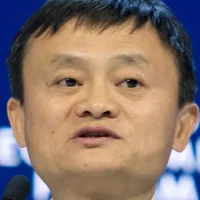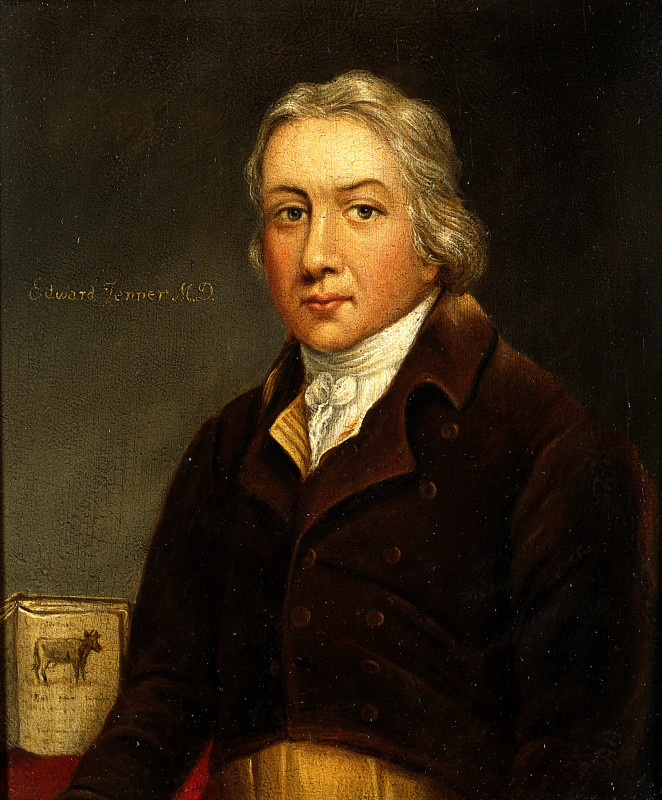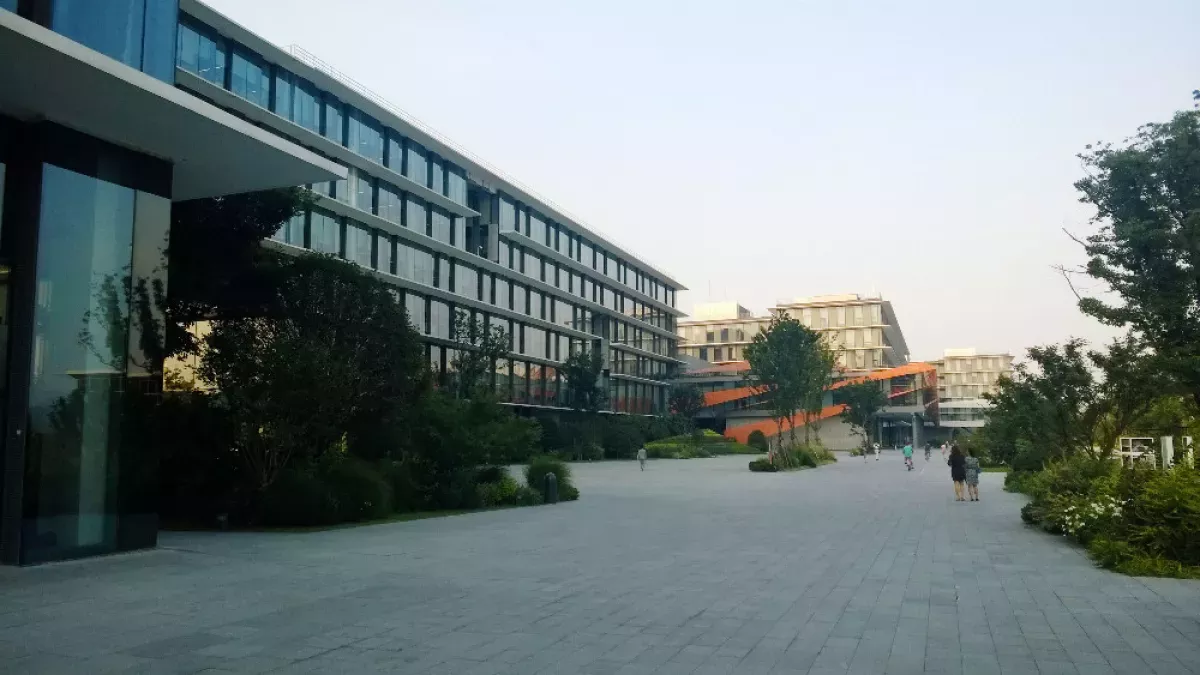Alibaba Group Holding Limited is a Chinese multinational conglomerate specializing in e-commerce, retail, Internet and technology. It is the world's largest online B2B trading platform for small businesses as of 2014. It was founded by Jack Ma, a Chinese business magnate, investor, and philanthropist.
April 4, 1999
On 4 April 1999, Jack Ma and his team of 17 friends and students founded Alibaba.com, a China-based B2B marketplace site, in his Hangzhou apartment.
Later Jack Ma launched the primary business of Alibaba, Alibaba.com, while working as an English teacher in Hangzhou. Alibaba.com has three main services: the English language portal Alibaba.com, which handles sales between importers and exporters from more than 240 countries and regions, the Chinese portal 1688.com, which manages domestic B2B trade in China, and transaction-based retail website AliExpress.com, which allows smaller buyers to buy small quantities of goods at wholesale prices.
October 1999
In October 1999, Alibaba received a $25 million investment from Goldman Sachs and SoftBank. Alibaba.com was expected to improve the domestic e-commerce market and perfect an e-commerce platform for Chinese enterprises, especially small and medium-sized enterprises (SMEs), to help export Chinese products to the global market as well as address World Trade Organization (WTO) challenges.
2002
In 2002, Alibaba.com became profitable three years after launch. Ma wanted to improve the global e-commerce system, so from 2003 onward, Alibaba launched Taobao Marketplace, Alipay, Alimama.com, and Lynx.
2003
In 2003, Alibaba launched Taobao Marketplace, offering a variety of products for retail sale. Taobao grew to become China's largest C2C online shopping platform and later became the second most visited web site in China, according to Alexa Internet. Apple Color Emoji", "Segoe UI Emoji", "Segoe UI Symbol"; font-size: 1rem;">Taobao's growth was attributed to offering free registration and commission-free transactions using a free third-party payment platform. Advertising made up 85 percent of the company's total revenue, allowing it to break even in 2009.
2004
In 2004, the Alibaba Group launched Alipay, a third-party online payment platform with no transaction fees. It also provides an escrow service, in which buyers can verify whether they are happy with goods they have bought before releasing money to the seller.
2005
In 2005, Yahoo! invested in Alibaba, buying a 40% stake in the company for US$1 billion. This would as a result net in US$10 billion in Alibaba's IPO alone to Yahoo!.
April 2008
In April 2008, Taobao introduced a spin-off, Taobao Mall (淘宝商城, later Tmall.com), an online retail platform to complement the Taobao C2C portal, offering global brands to an increasingly affluent Chinese consumer base.
September 2009
In conjunction with the company's 10th anniversary, Alibaba launched Alibaba Cloud in September 2009, aiming to build a cloud computing service platform, including e-commerce data mining, e-commerce data processing, and data customization. Alibaba Cloud is the largest high-end cloud computing company in China. It has R&D centres and operators in Hangzhou, Beijing, Hong Kong, Singapore, Silicon Valley and Dubai.
2009
In 2009, Alibaba acquired HiChina, the largest domain registration service and web hosting service company in China, and built it into Alibaba Cloud.
March 2010
In March 2010, Taobao launched the group shopping website Juhuasuan (聚划算), offering "flash sales", which are products that are available at a discount for only a fixed time period.
October 2010
In October 2010, Taobao beta-launched eTao, a comparison shopping website that offers search results from mostly Chinese online shopping platforms, including product searches, sales and coupon searches. According to the Alibaba Group web site, eTao offers products from Amazon China, Dangdang, Gome, Yihaodian, Nike China, and Vancl, as well as Taobao and Tmall.
2010
In 2010, Alibaba launched AliExpress.com, an online retail service made up of mostly small Chinese businesses offering products to international online buyers. It allows small businesses in China to sell to customers all over the world, resulting in a wide variety of products.
In the same year, Taobao's profit was estimated to be ¥1.5 billion (US$235.7 million), which was only about 0.4 percent of their total sales figure of ¥400 billion (US$62.9 billion) that year, way below the industry average of 2 percent, according to iResearch estimates. According to Zhang Yu, the director of Taobao, between 2011 and 2013, the number of stores on Taobao with annual sales under ¥100 thousand increased by 60%; the number of stores with sales between ¥10 thousand and ¥1 million increased by 30%, and the number of stores with sales over ¥1 million increased by 33%.
February 2011
In February 2011, controversy ensued when Alibaba's corporate office admitted that it had granted the mark of integrity of its "China Gold Supplier" program to more than 2,000 dealers that had subsequently defrauded buyers; the firm's share price dropped "abruptly" after the announcement. A statement from the firm reported that Yan Limin, the general manager of Alibaba.com at the time, had been dismissed in March for "misconduct"; Phil Muncaster of UK's The Register additionally reported that "a further 28 employees had been involved in dodgy dealings".
July 28, 2011
On 28 July 2011, Alibaba Cloud released AliOS (formerly Yun OS and Aliyun OS), a Linux distribution designed for mobile devices.
2011
As part of a restructuring of Taobao by Alibaba, the spin-offs became separate companies in 2011, with Tmall and eTao becoming separate businesses in June and Juhuasuan becoming a separate business later in October.
2012
In 2012, Tmall.com later changed its Chinese name to Tianmao (天猫, "sky cat"), reflecting off of Tmall's Chinese pronunciation.
April 2013
In April 2013, Alibaba Group announced that, as part of the agreement to buy back the Yahoo! Mail stake, that they would suspend technological support for China Yahoo! Mail service and begin migration of Yahoo! China Mail accounts. Several options were offered to users to make the transition as smooth as possible, and Yahoo! China users had four months to migrate their accounts to the Aliyun mail service, the Yahoo! Mail service in the United States, or to another third-party e-mail provider of the user's choice.
2013
According to Li Chuan, a senior executive at Alibaba, the company was planning in 2013 to open traditional brick and mortar retail outlets in partnership with Chinese real estate company Wanda Group. Additionally, Alibaba purchased a 25% stake in Hong Kong-listed Chinese department store chain Intime Retail in early 2014.
February 2014
According to analyst research report, Alipay has the biggest market share in China with 300 million users and control of just under half of China's online payment market in February 2014.
March 2014
In March 2014, Alibaba agreed to acquire a controlling stake in ChinaVision Media Group for $804 million, which was later renamed to Alibaba Pictures Group. The two firms announced they would establish a strategic committee for potential future opportunities in online entertainment and other media areas.
April 2014
In April 2014, Alibaba and Yunfeng Capital, a private equity company controlled by Alibaba's founder, Jack Ma, agreed to acquire a combined 18.5 percent stake in Youku Tudou, which broadcasts a series of popular television programs and other videos over the Internet.
In the same month, Alibaba, Coatue Management, and Andreessen Horowitz led a US$250 million Series D financing round that was completed by on-demand transportation company Lyft, bringing its total amount raised to $332.5 million.
June 5, 2014
On 5 June 2014, Alibaba bought a 50% stake of Guangzhou Evergrande F.C. from Evergrande Real Estate Group Ltd. in a deal that was worth 1.2 billion yuan (US$192 million).
June 2014
On 11 June 2014, Alibaba launched US shopping site 11 Main. The 11 Main marketplace hosts more than 1,000 merchants in categories such as clothing, fashion accessories and jewellery as well as interior goods and arts and crafts and it plans to keep adding more, said the company. On 23 June 2015, Alibaba announced that it is selling 11 Main to OpenSky, an online-marketplace operator based in New York.
July 2014
In July 2014, Alibaba Cloud entered into a partnership deal with Inspur.
September 5, 2014
On 5 September 2014, the group—in a regulatory filing with the US Securities and Exchange Commission—set a US$60- to $66- per-share price range for its scheduled initial public offering (IPO), the final price of which would be determined after an international roadshow to gauge the investor interest in Alibaba shares to shareholders.
September 19, 2014
Apple Color Emoji", "Segoe UI Emoji", "Segoe UI Symbol"; font-size: 1rem;">On 19 September 2014, Alibaba's shares (BABA) began trading on the NYSE at an opening price of $92.70 at 11:55 am EST.
September 22, 2014
On 22 September 2014, Alibaba's underwriters announced their confirmation that they had exercised a greenshoe option to sell 15% more shares than originally planned, boosting the total amount of the IPO to $25 billion.
October 16, 2014
On 16 October 2014, the Alipay company was re-branded as Ant Financial Services.
2014
Alibaba.com became the world's largest online B2B trading platform for small businesses as of 2014.
By 2014, there are 50 million Aliwangwang users, making it the second largest instant messaging tool in China.
In 2014, Alibaba and Yunfeng Capital, a private equity firm, launched AliHealth when the two companies bought a 54% stake in CITIC 21CN for HK$1.33 billion (US$171 million). It is listed on the Hong Kong Stock Exchange as SEHK: 241. It positions itself as a pharmaceutical e-commerce business and medical services.
In the same year, Alibaba acquired Chinese map supplier AutoNavi.
March 2015
In March 2015, Alibaba Group launched AliMusic as its music division. Xiami Music and Tiantian Music are two of music steaming APP owned by AliMusic.
April 2015
In April 2015, the group also reached an agreement to transfer its online B2C pharmacy, Tmall Medical (yao.Tmall.com), to AliHealth. The integration provides consumers a wide range of pharmaceutical and health products available in China.
Later, Alibaba launched its Shanghai-based sports division, AliSports, after a consolidation of some of the parent company's existing business units. The new company's operations encompass television and digital sports rights, event operation, venue commercialization, copyright, media, business development, gaming, and ticketing.
AliSports secured exclusive title sponsorship of the FIFA Club World Cup from 2015 to 2022. The company announced a Champion of Champions rugby sevens tournament in 2017, to be played in Shanghai for the highest prize money ever offered in the sport.
July 2015
AliMusic named Gao Xiaosong as the chairman and Song Ke as Chief Executive Officer in July 2015.
October 2015
Alibaba and the underwriters of its IPO were sued in California in a consolidated class action lawsuit. The lawsuit was brought in San Mateo Superior Court in October 2015 on behalf of investors who purchased Alibaba's American Depositary Shares, and it alleged violations of the Securities Act. Alibaba reached a settlement agreement in December 2018, subject to court approval, in which it agreed to pay $75 million to settle the lawsuit.
December 2015
In December 2015, Alibaba agreed to a deal to acquire the South China Morning Post and other media assets belonging to the group for a consideration of $266 million. Although Alibaba promised editorial independence, vice-chairman Joseph Tsai said that Alibaba believes that "the world needs a plurality of views when it comes to China coverage.
2015
In 2015, Alibaba announced that they will introduce a system that can be paid by recognizing the owner's face.
April 2016
On April 2016, Alibaba announced that it intended to acquire a controlling interest in Lazada by paying $500 million for new shares and buying $500M worth of shares from existing investors. Lazada Group is a Singaporean e-commerce company founded by Rocket Internet in 2011. Lazada operates sites in Indonesia, Malaysia, the Philippines, Singapore, Thailand, and Vietnam.
October 2016
On October 2016, Alibaba launched Alitrip, later named Fliggy, an online travel platform that is designed as an online mall for brands such as airline companies and agencies.
2016
Alibaba is frequently associated with fraudulent import of counterfeit items: in 2016, the Office of the United States Trade Representative added Taobao back onto a list of notorious counterfeit platforms that includes the likes of torrent site The Pirate Bay.
Meanwhile, Alibaba's Taobao and Tmall, two of the world's largest and most popular online retail marketplaces, achieved a total transaction volume of 3 trillion yuan (US$478.6 billion). The company aims to double the transaction volume to 6 trillion yuan by 2020.
January 2017
In January 2017, Alibaba and the International Olympic Committee jointly announced a $800 million deal that would last till 2028 in where the company would sponsor the Olympic Games.
August 7, 2017
On 7 August 2017, Alibaba Group and Marriott International hotel group announced a comprehensive strategic co-operation. Two companies will set up a joint venture company. Through the docking technology system and the superiority resources, Fliggy has Marriott hotel flagship store. It has the same function with Marriott Chinese website and Marriott mobile app to create the best global travel experience for consumers.
2017
In the 2017 Computing Conference in Hangzhou, Alibaba launched AliGenie, a China-based open-platform intelligent personal assistant. It is currently used in the Tmall Genie smart speaker.
During the same year, Tencent Music has expected $10bn IPO by signing a rights deal with Alibaba, strengthening its position within the important Chinese market.
February 2018
As of February 2018, Taobao reached 580 million monthly active users, while Tmall achieved 500 million monthly active users. It is also rapidly expanding its e-commerce network abroad. Alibaba has also announced that it will invest 100 billion yuan over five years to build a global logistics network, underpinning an aggressive overseas expansion, and demonstrating Alibaba's commitment to building the most efficient logistics network in China and around the world.
September 10, 2018
On 10 September 2018, Ma chose Zhang to succeed him as executive chairman of the Alibaba Group after his stepping down announcement, and this would go into effect in 1 year on 10 September 2019.
September 2018
In September 2018, Jack Ma, the main founder of Alibaba, announced that he would step down as chairman in a year's time so he could focus on philanthropy. In response to the announcement, The Economist stated that Ma had a significant impact in China and worldwide via contributions and dedication to various businesses.
Early 2017
In early 2017, Alibaba and Intime's founder Shen Guojun agreed to pay as much as 19.8 billion Hong Kong dollars (US$2.6 billion) to take the store chain private. Alibaba's stake—28% from 2014's US$692 million investment—would rise to about 74% after the deal.
Mentioned in this timeline

Tencent is a Chinese multinational technology conglomerate headquartered in Shenzhen...

Jack Ma Yun is a prominent Chinese businessman and philanthropist...
Facebook is a social media and networking service created in...
WeChat also known as Weixin in Chinese is a multipurpose...

Google LLC is a multinational technology corporation specializing in a...
California is a U S state on the Pacific Coast...
Trending

33 minutes ago Google Maps to fully function in South Korea after data agreement.

2 hours ago CDC Panel to Discuss COVID-19 Vaccine Injuries Following RFK Jr.'s Meeting

33 minutes ago CDC Panel to Discuss COVID Vaccine Injuries Following RFK Jr.'s Meeting

2 hours ago Casey Means' Surgeon General Nomination Faces Scrutiny Over Mainstream Medicine Criticism and Birth Control Views.
3 hours ago Punch, the lonely baby monkey, goes viral and wins hearts worldwide.

4 hours ago Jon Hamm Discovers Viral Dancing Meme; Reacts to Meme-Worthy Status at 54.
Popular

Jesse Jackson is an American civil rights activist politician and...

Barack Obama the th U S President - was the...

Susan Rice is an American diplomat and public official prominent...

XXXTentacion born Jahseh Dwayne Ricardo Onfroy was a controversial yet...

Michael Joseph Jackson the King of Pop was a highly...

Kashyap Pramod Patel is an American lawyer who became the...
